If you loved World, you should be very excited about Monster Hunter Rise coming to PC
Capcom's latest entry in the series can't come to the big leagues soon enough.
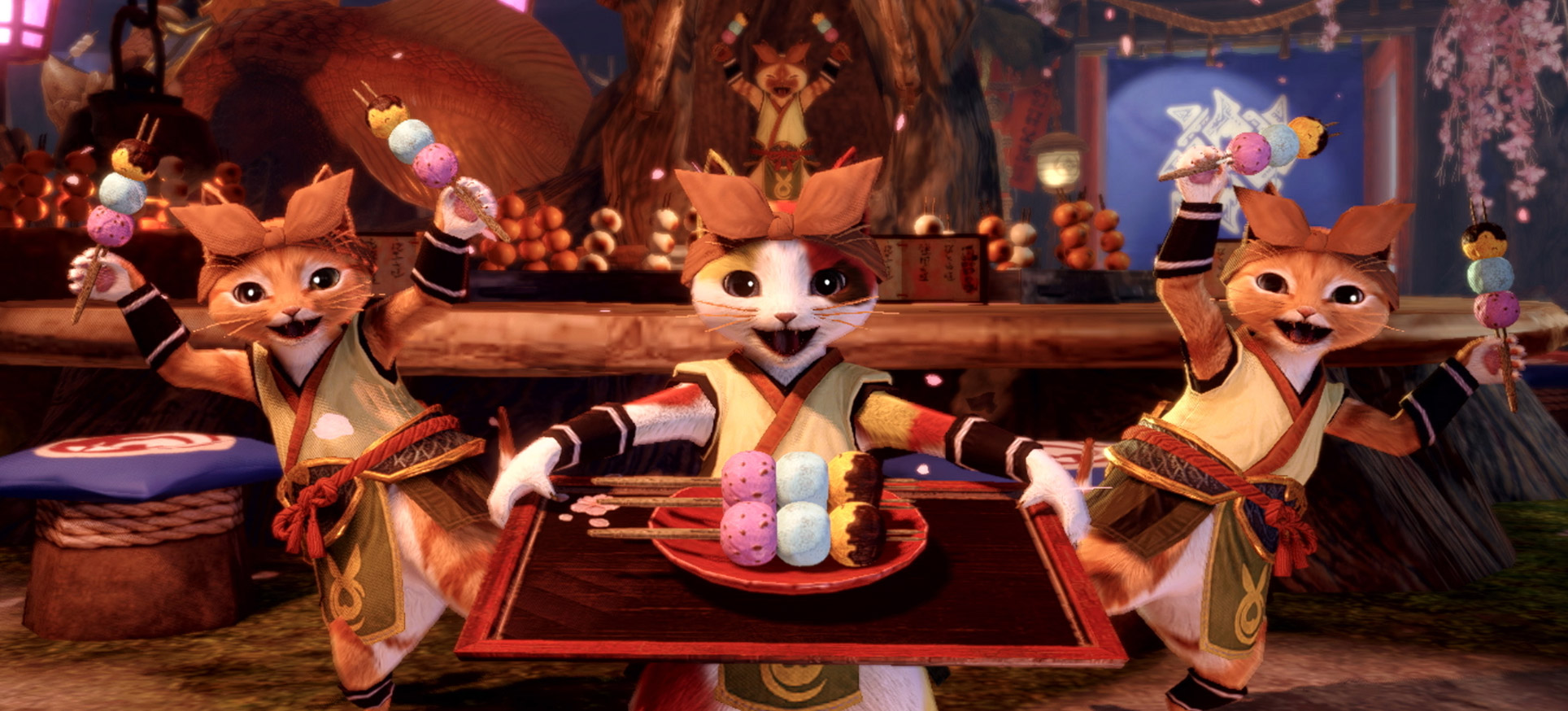
It's not out on PC until next year, but I couldn't wait that long, and when I broke out of Hunter Rank 1 I fell in love with Monster Hunter: Rise. As with all games in the series, there's a brief period of acclimatisation: settling into the comfortably familiar and playing around with whatever's new. Rise may look like a typical Monster Hunter in screenshots, but it's as new as Monster Hunter World was in 2018: a re-casting and re-imagining of the portable series that learns a huge number of lessons.
I've been playing Monster Hunter since 2 on the PSP, and have played at least one version of each numbered entry since (Capcom tends to re-release 'deluxe' versions of each entry). Similar to Pokemon, Monster Hunter has always been stuck in its ways. Innovation has been glacial as Capcom has judiciously added to and tweaked the formula, rather than risk upsetting everything.
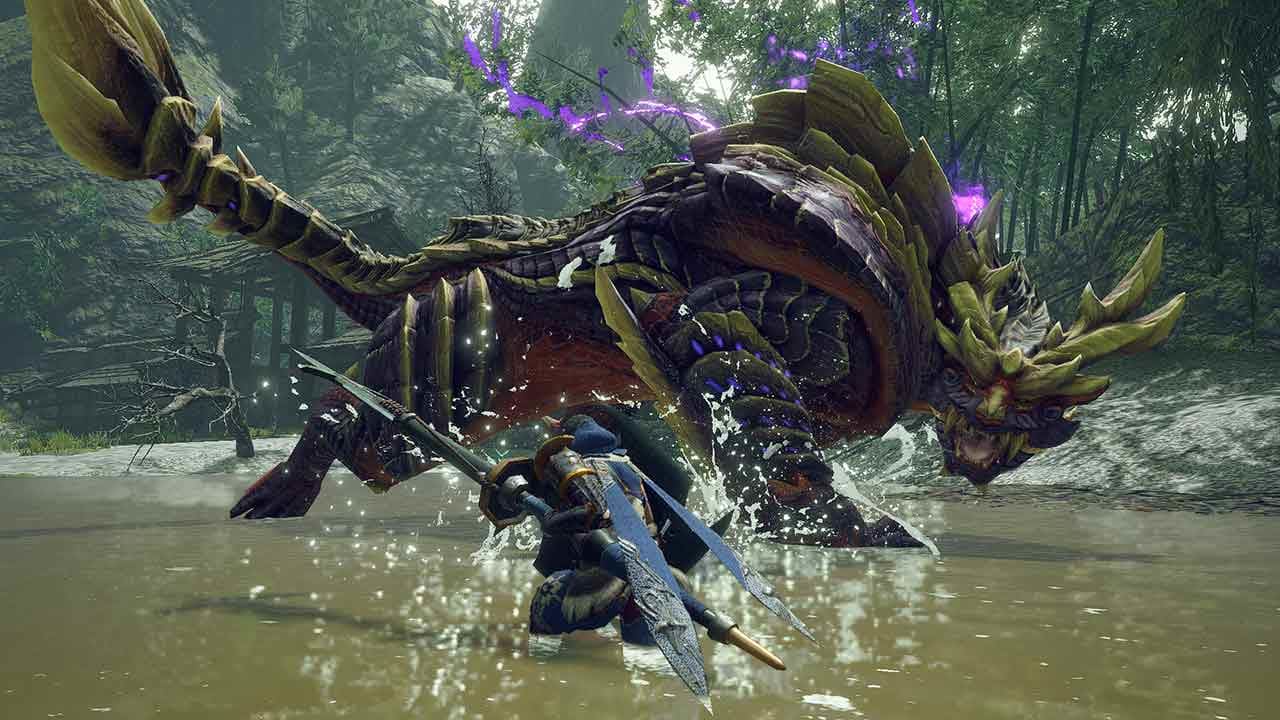
Though the overall arc of the series is that it Definitely Gets Better Over Time, at some points it's been one step forwards, two steps back. Tri introduced water combat to the series; 4 removed it. Generations added special moves and stance options, but remained set in discrete areas; World made the map a coherent whole, but its weapons had less flexibility than Generations Ultimate. World was also the first that was a technical showcase, and its general excellence managed to expand the series' audience even further in the west.
Now we have Rise, another complex beast. I imagine the timed Switch exclusive was concepted when it became clear what a smash the portable console hybrid was going to be, because this is essentially a slight technical downgrade from World that somehow manages to incorporate all of that game's best elements, and add even more. It doesn't just take ideas like the load-free map, but also World's emphasis on accessibility, and goes even further to strong-arm new traversal concepts into the Monster Hunter style, like the Wirebug.
A grapple that's much more worked-in to the game's movement than World's equivalent, multiple Wirebugs can be stacked and used to slingshot your hunter forwards or upwards, which combine with wall-running, climbing and mounting monsters in obvious ways. The bugs also double-up as offensive options: some moves allowing a quick escape and a return counter-attack; others designed to ensnare over-aggressive beasts in the wires.
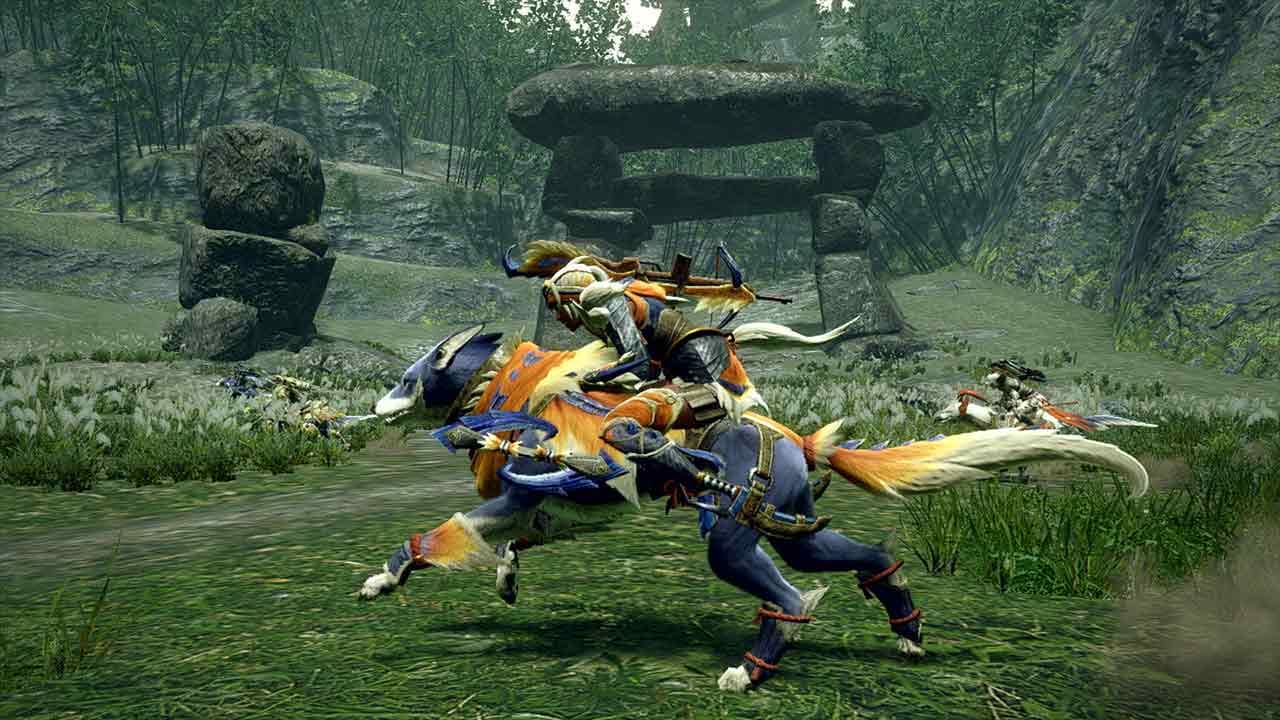
For longtime fans, everything that you used to have to look up online is now in-game: the key quests are obvious, villagers you have to talk to are clearly marked, the gear trees are clear, and the mini-tutorials are better than they ever have been. Rise onboards fresh players in a way that Monster Hunter's never been good at, and as it opened up I realised I don't miss what's been removed.
Rise takes aim at almost all of the 'boring' bits of Monster Hunter, the bits you had to google or just didn't look forward to, and punts them into the sun. It introduces a dog, a malamute, as your permanent companion and mount that lets you dart across a map faster than ever. I wouldn't call traversal in the previous games bad, exactly, but along with the new Wirebug grapple tool, Rise makes moving around its environments an absolute joy.
The biggest gaming news, reviews and hardware deals
Keep up to date with the most important stories and the best deals, as picked by the PC Gamer team.
The older Monster Hunters didn't have the sense of verticality this does, and chasing down monsters on your steed, wall-running and swinging across gaps, even using my gunlance to stay afloat and propel my hunter an extra few feet—it's sheer magic, and it's completely new to the series. The right comparison here is not to Monster Hunter: World, but Breath of the Wild: Nintendo's flagship Switch title had great ideas about how its lead character should tackle open spaces, and Rise feels similarly motivated to speed up the sensation of clambering through a 3D space.
Monster Hunter Wilds guide: All our advice in one place
Monster Hunter Wilds multiplayer: How to co-op hunt
Monster Hunter Wilds weapons: Builds galore
Monster Hunter Wilds best armor: Defend yourself
Monster Hunter Wilds: Artian weapons: Endgame equipment
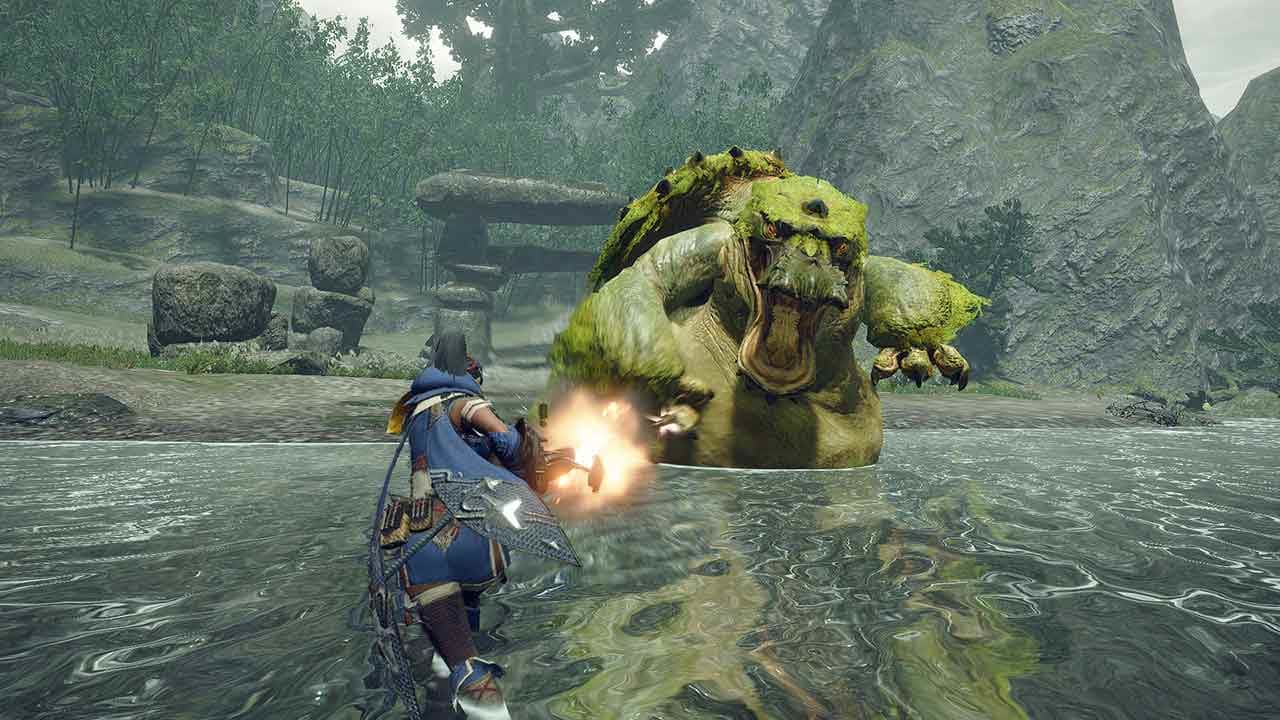
The whole point of the new freeform movement, as with so much of Rise, is to funnel players into the good stuff quicker than ever before. This is without a doubt the Monster Hunter with the least 'downtime' in and between quests (though, of course, you can lounge around whenever you like), and the sheer variety in Rise's historic bestiary built up over X years means it starts at a cracking pace and never lets up.
The monsters, old and new, still look incredible at this lower resolution, and have more aggressive and surprising behaviours than ever (as does every hunter). It's not that Rise's zones are fuller or emptier than those of World, so much as they pack-in as much action as possible. Each quests's area has other monsters, as in World, which at various points interfere with your hunt and are easier than ever to recruit thanks to a Wirebug move that lets you tame monsters as temporary mounts: one of my hunting buddies begins almost every new quest by finding another monster, then trying to ride it into the quest monster.
This game is a riot. I went with gunlance because I haven't mained it for a few entries, and while the core moveset is familiar, almost everything else about it is either new or, in combination with the Wirebug movements and companion mounts, has a new role to play. One of the gunlance's big downsides was always its low mobility, and in the age of Rise that limitation seems almost irrelevant, such is the speed with which my hunter can doggo-sprint, grapple, and force-blast his way across the landscape.
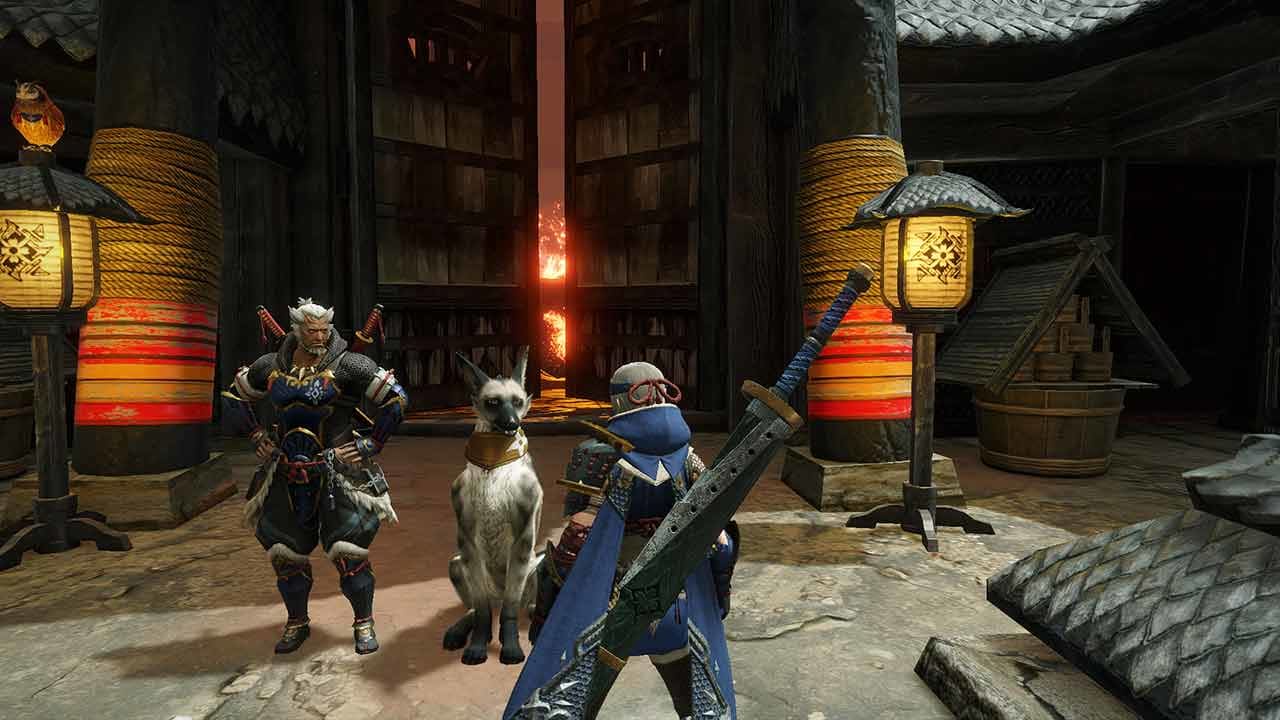
The more Rise you play, the more it has to give. You begin unlocking special moves that give each weapon's moveset a new angle of approach, or a ten-tonne slam for when it's needed. Not only does it feel cool to bounce around the map like some combination of Tarzan and Batman, but it wasn't long before I was using my newfound agility to maximise hunting efficiency. Rise even improves the always-godawful event monster set-pieces with the chaotically fun Rampage mode, which adds light elements of strategy (such as cannon-positioning) to defending your settlement from hordes of monsters.
The single biggest thing Rise gets right, is you spend so much time hunting. I don't know if Rise will hold up in the endgame yet, but this feels like a simply brilliant new take on Monster Hunter, one with firm roots in its slightly weirder and more complex lineage, but is confident enough to adopt the best aspects of World and Iceborne's mainstream appeal.
Monster Hunter has since the very start always delivered awesome fights against monsters, and tied that up into a lot of busywork. Rise delivers more amazing hunting action per minute, and less busywork, than this great series has ever had.

Rich is a games journalist with 15 years' experience, beginning his career on Edge magazine before working for a wide range of outlets, including Ars Technica, Eurogamer, GamesRadar+, Gamespot, the Guardian, IGN, the New Statesman, Polygon, and Vice. He was the editor of Kotaku UK, the UK arm of Kotaku, for three years before joining PC Gamer. He is the author of a Brief History of Video Games, a full history of the medium, which the Midwest Book Review described as "[a] must-read for serious minded game historians and curious video game connoisseurs alike."


